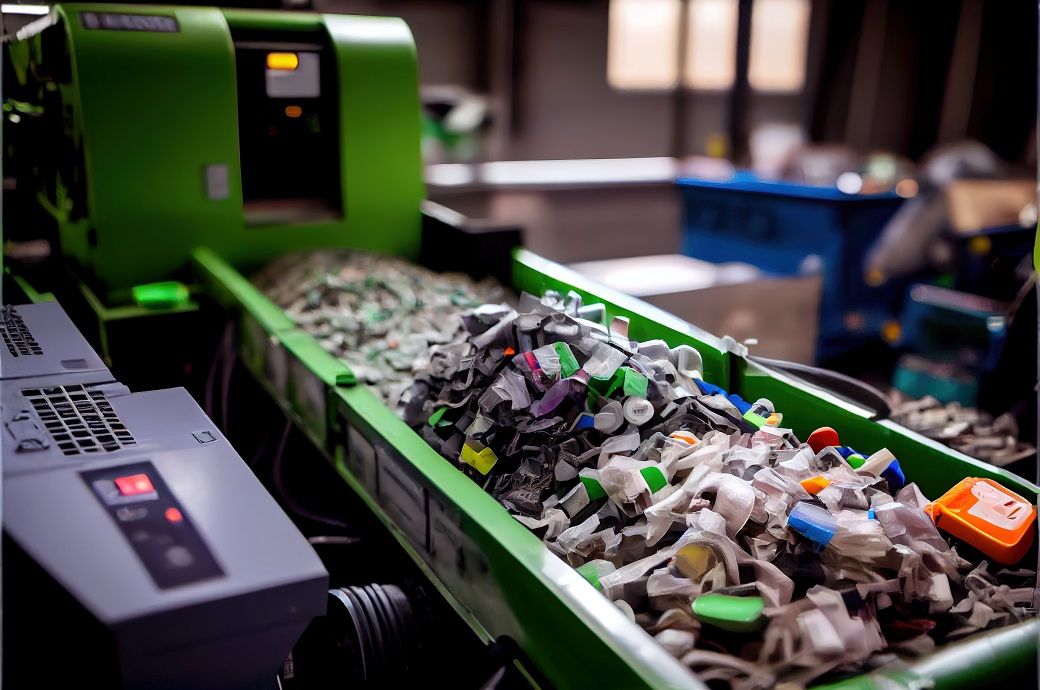

Schneider Electric, the world's most sustainable company and leader in the digital transformation of energy management and automation has partnered with GR3N, the Polyethylene Terephthalate (PET) chemical recycler to create the first open automation system for the advanced plastic recycling industry.
With 50% of global plastic waste ending up in landfills and only 9% recycled, GR3N developed MADE, the Microwave Assisted DEpolymerization solution. This new process breaks down PET into its chemical building blocks that can be recombined to create new PET pellets with virgin-like quality for packaging and textiles, effectively closing the loop for hard to recycle plastic. The technology is based on alkaline hydrolysis, and it can manage a higher amount of impurities compared to the existing ones.
In March 2024, GR3N successfully demonstrated MADE and the power of Schneider Electric's open automation technology, EcoStruxure Automation Expert at its demonstration site in Italy. MADE plant is conceived to anticipate the usage of all the technologies that will be finally adopted for the first industrial-scale facility, foreseen to be installed in Spain and with an expected capacity of over 40.000 ton/year of PET waste treated. The intrinsic modularity of GR3N's proprietary recycling process has allowed MADE to be the first plastic recycling plant to use the shared automation runtime managed by Universal Automation, based on the IEC 61499 standard.
The software-defined automation system decouples hardware from software, allowing devices and equipment to be freely connected across architecture layers, regardless of manufacturer. It acts as the digital backbone of industrial operations at the plant, providing the foundation to make more informed decisions. This approach allows MADE to be also technological demonstration of a new generation of automation systems, where the intertwining between OT and IT enables the exploitation of advanced functionalities for operations management and data analytics.
"Through software-defined automation and hardware independence, we have been able to effectively de-risk our operations and push the boundaries of our technology," said Fabio Silvestri, head of marketing and business development at GR3N. "We've been able to reconfigure our systems quickly when we see opportunities to improve efficiency, while avoiding supply chain issues due the hardware agnostic nature of the system. This is what is needed to make advanced plastic recycling at reality at scale."
Due to EcoStruxure Automation Expert's modular, agnostic nature, GR3N was able to choose the optimal technology for the demonstration plant and easily scale to new sites. Benefits include:
Global demand for plastics is expected to triple by 2060, with the amount of plastics in the ocean predicted to outweigh fish. Meeting demand and curbing pollution, while achieving net zero by 2050, requires a consumption model revolution.
The partnership between GR3N and Schneider Electric, that has started with the signature of a Memorandum of Understanding, will enable the chemical recycler to scale operations to new sites quickly and cost-effectively. The solution is expected to reach industrial scale by 2027 with the construction of a 35-40kta plant which will include the pre-treatment, depolymerization and repolymerization.
"Every year, people produce around 460 million tons of plastic, approximately 70% of which are sent to landfills or mismanaged," said Christophe de Maistre, president Energy & Chemicals, Industrial Automation at Schneider Electric.
"If we want to overcome the scale of plastic waste, there are certain non-negotiables. We must see integration across the whole product cycle, modularization to optimize and standardize engineering processes, as well as software defined automation solutions that delivers scalability, break siloes and acts as a gateway to advanced analytics. This project with GR3N demonstrates all of these principles, improving flexibility, scalability and the efficiency of their solution and enabling them to grow to an industrial scale."
Fibre2Fashion News Desk (HU)